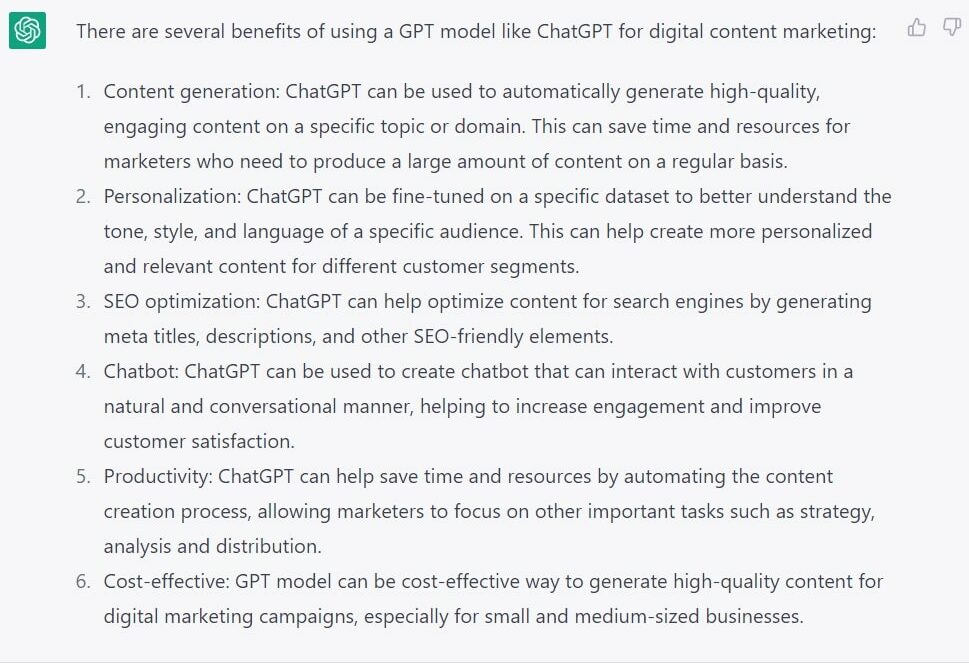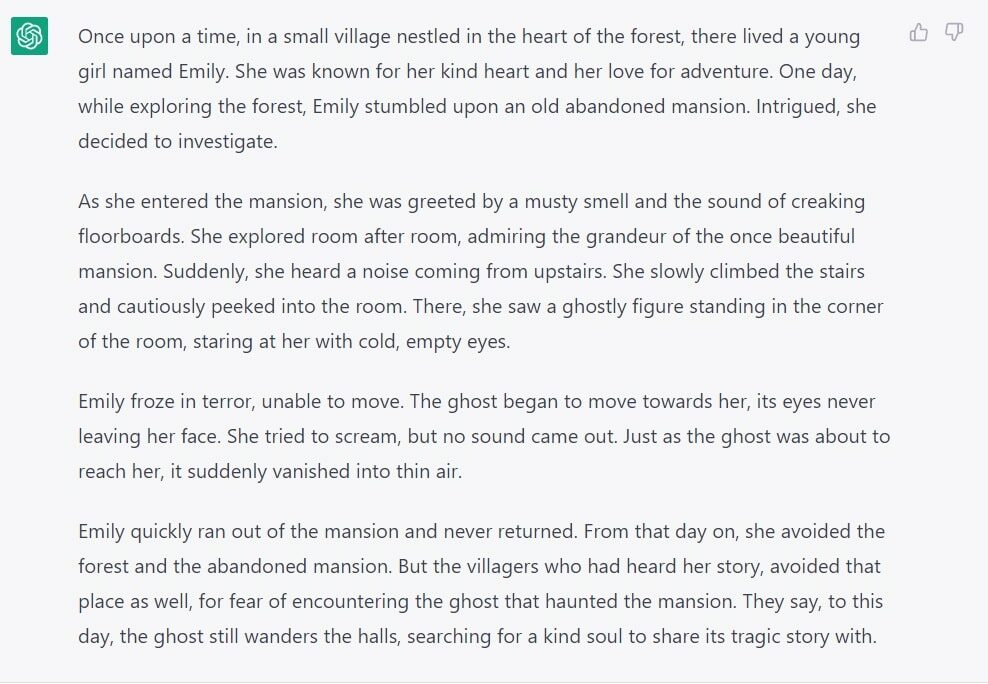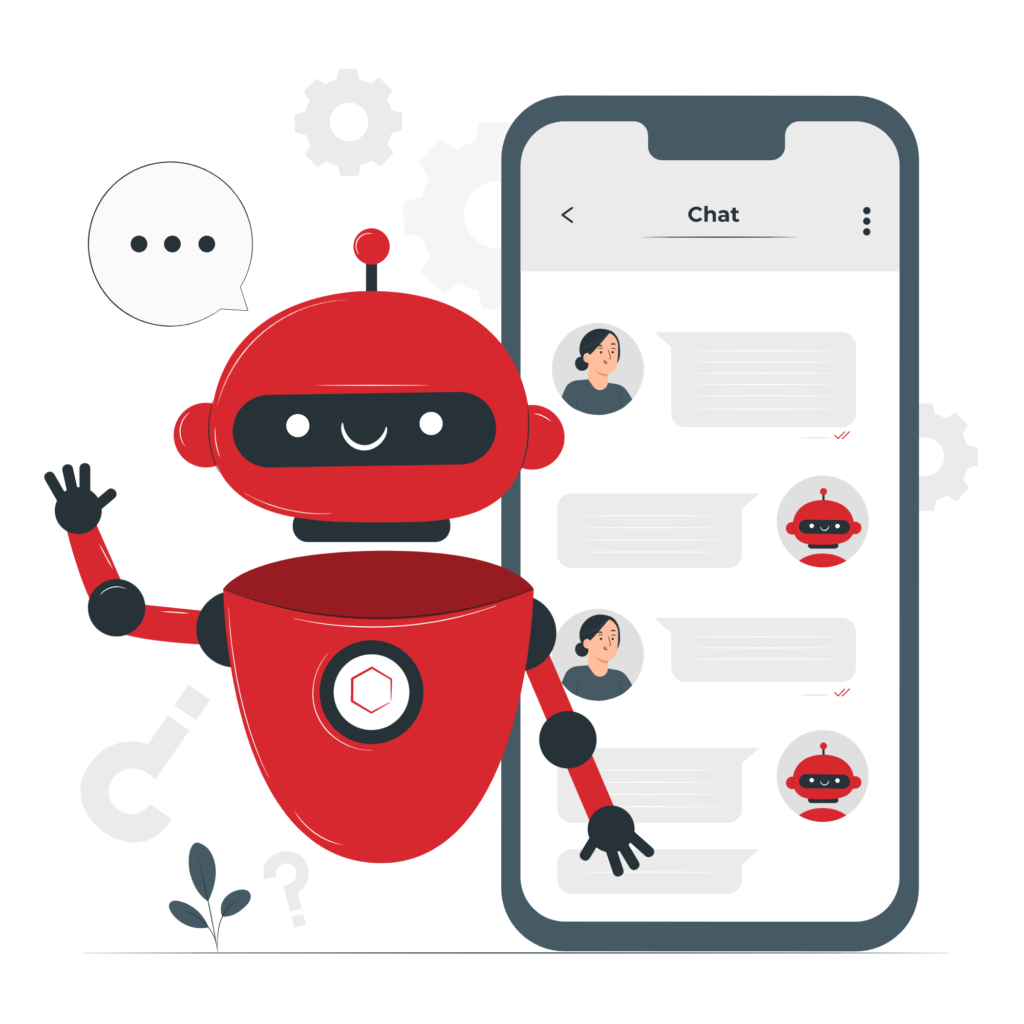The technology world was rocked near the end of 2022 by the public debut of ChatGPT, a chatbot developed by OpenAI. Although chatbot programs—including Apple’s Siri, Amazon’s Alexa, and Microsoft’s Cortana—have existed for many years, experts hailed ChatGPT’s arrival as an inflection point for AI’s impact in the private sector. The program’s efficacy in producing long-form, natural-sounding text is unprecedented. Indeed, by the end of January 2023, the media company Buzzfeed announced it would implement ChatGPT for content creation support. These developments will affect the role of content marketing agency writers and approaches to digital marketing in general. Nevertheless, this AI cannot (yet) replicate industry experts’ judgment and innovation, so its output leaves room for nimble marketers to leverage the technology within a comprehensive content marketing strategy.
For help crafting such a strategy and navigating the revolutionary world of AI, turn to KME.digital. We provide Fairfax, VA, businesses with SEO, social media, paid advertising, content marketing services, and more. Our monthly contracts and customized reporting empower clients with a voice in their digital marketing strategy. To learn more about our services and get a digital evaluation, call (703) 585-3321 or visit our website.
Below, we examine ChatGPT’s output, shortcomings, and applications as a content marketing tool.
ChatGPT’s Capabilities and Output
Currently, OpenAI is offering a free version of ChatGPT to the public. Anyone can access and use the program so long as its servers can admit them (OpenAI extends access to a certain number of users at a time). Moreover, ChatGPT’s web-based accessibility means users have nothing to download before using the program.
The user interface is similar to a search engine’s start-up page, featuring a text box where users type their input. OpenAI recommends that users phrase inputs as statements, though their program also accepts questions. Users can seek advice or expertise, such as how to run a business during difficult economic times.
When asked about the benefits of using ChatGPT for content marketing, the program answered:

The response—produced in seconds—is clear, straightforward, and almost (though not entirely) error-free. While a content marketing manager could also write a discussion of the pros and cons of AI-generated content, it would require a handful of hours to do so.
ChatGPT can also produce entertainment content. For instance, when prompted to generate a ghost story, the program responded:

Worth noting here is the program’s use of genre conventions and tropes (a daring protagonist, dark forest, haunted house, and an unfriendly spirit) to produce a plot. This example illuminates the (current) edge of the technology’s functioning: it reproduces elements of pre-existing content rather than creating novel or unfamiliar ones.
Characteristics and Limits of ChatGPT-Generated Content
While some users have just started testing ChatGPT’s capabilities, others have already discovered the program’s limitations. ChatGPT is a Large Language Model (LLM), a kind of AI system that programmers “train” using datasets composed of vast amounts of text. When given a command, an LLM pulls from its store of information to generate a response, selecting its text by predicting the word or phrases that follow the material it has already produced. For example, it would recognize the word “the” as a grammatical article and choose an appropriate noun or noun phrase to follow.
While this design allows such programs to create human-like responses, it also limits those responses’ quality to that of the programmers’ input. For instance, ChatGPT lacks data on current events—as its datasets extend up to 2021—so it cannot provide specific details on recent developments. Programmers must update the input before the program can give insight into events after 2021.
ChatGPT’s responses also bear some characteristic features, including:
- Difficulty with idiomatic expressions (and dependence on literal interpretations)
- Summative explanations rather than novel ideas and suggestions
- Verbose, exhaustive responses
- An overly systematic, logical flow of ideas
- Biases toward neutrality and formality
Since it seeks to provide answers that suit all users, ChatGPT delivers generic responses without specific detail. ChatGPT also occasionally produces reasonable-sounding yet erroneous responses, a tendency OpenAI warns users about but one that has already prompted confusion and ethical debates on machine learning. Still, these outcomes give SEO specialists and content marketing managers a place to apply their expertise and provide value.
Recognizing and Improving AI-Generated Text
The release of content-producing LLMs has sparked a wave of developers to create and release programs that detect AI-powered writing. However, readers can also use the characteristic features of ChatGPT text listed above to identify and improve machine-written materials. While older AI tools fail to produce natural-sounding, long-form content, ChatGPT’s most recent model sounds genuine yet wordy and somewhat repetitive (as its predictive text relies on recognizable phrases). It also tends towards vagueness over specificity.
Content writers can use AI-generated content as a starting point for their work, but they must build on it to create high-performing content. Google recognizes AI writing as automatically generated content; if it lacks a human touch, that material may scan as “spammy” and rank poorly in the search engine. By incorporating a unique perspective with insights gathered from experience, content writers can personalize the generic text and make it practical. Plus, they can optimize for local SEO to help their content perform better in search engines.
Furthermore, marketing writers must apply diverse abstract considerations of voice and audience that ChatGPT cannot grasp. For instance, human writers can apply emotional knowledge to create specific tones of voice and effects through writing. They also recognize and recreate—or adapt—a brand’s voice as the situation demands. Finally, resourceful content writers recognize which concepts to emphasize or downplay as well as how to do so: word placement, colloquial language, calls-to-action, and even dialogue with customers.
Seek Content Marketing Agency Writers’ Support in Fairfax, VA!
The shifts and adaptations within the digital marketing landscape make navigation a difficult and time-consuming process—yet a professional agency with agile content marketing agency writers can ensure your business rides the waves of innovation and success. Fairfax, VA, organizations can turn to KME.digital for all such needs. Our team of industry experts delivers customized solutions and exceptional insights for our clients’ needs. Call (703) 585-3321 or visit our website to learn more about our digital marketing capabilities.
